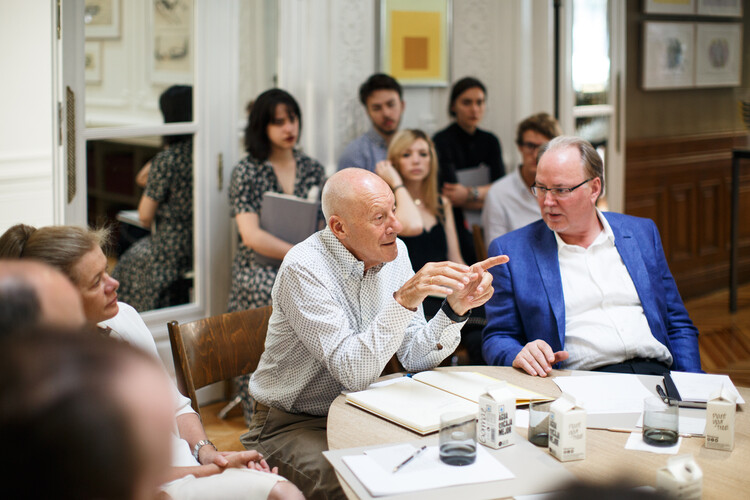 Norman Foster. Image © Pablo Gómez-Ogando via Courtesy of the Norman Foster Institute
Norman Foster. Image © Pablo Gómez-Ogando via Courtesy of the Norman Foster Institute
Share
Or
https://www.archdaily.com/1032237/beirut-to-madrid-global-education-programs-from-zaha-hadid-norman-foster-and-som-foundations
Foundations established by architects have increasingly become involved in architectural education through scholarships, fellowships, and interdisciplinary academic programs. These initiatives often aim to support students, promote research, and facilitate broader engagement with architecture and the built environment. Some architect-initiated foundations, such as the Zaha Hadid Foundation, which recently launched the Zaha Hadid Scholars Program at the American University of Beirut, along with the Norman Foster Foundation and the SOM Foundation, have introduced educational programs connected to their missions. While these programs differ in structure and focus, they commonly seek to extend the legacies of their founders by addressing contemporary challenges in design education. Their activities range from localized scholarship offerings to global research collaborations, reflecting a diverse approach to nurturing emerging talent and advancing architectural discourse.
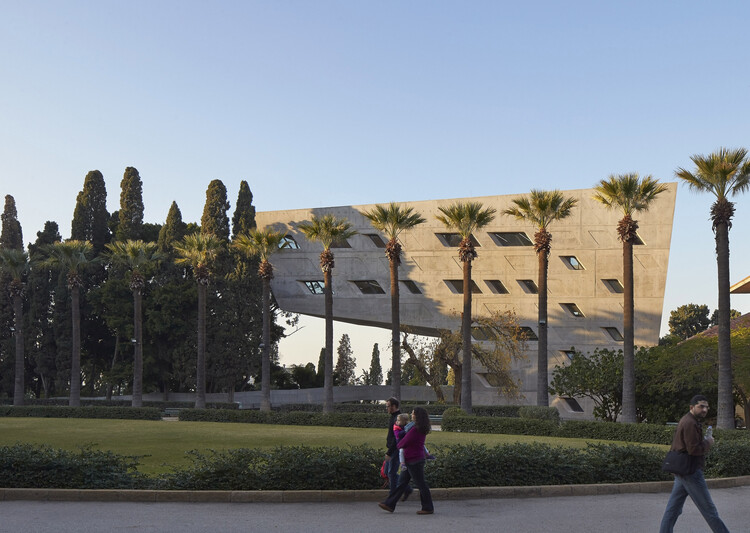 Issam Fares Institute – American University of Beirut / Zaha Hadid Architects. Image © Hufton+Crow
Issam Fares Institute – American University of Beirut / Zaha Hadid Architects. Image © Hufton+Crow
The Zaha Hadid Foundation (ZHF) recently announced the establishment of the Zaha Hadid Scholars Program in collaboration with the American University of Beirut (AUB). Starting in September 2025, and continuing for three academic years, the program will fully fund two undergraduate students each year for the duration of their five-year architecture degree at AUB’s Maroun Semaan Faculty of Engineering and Architecture. Students will be selected on the basis of both academic merit and financial need. The program seeks to honor Zaha Hadid‘s legacy as an educator and her deep personal connection to AUB, where she studied mathematics in 1968-69 and received an honorary doctorate in 2006.
This initiative adds to the Foundation’s broader mission of advancing research, learning, and public engagement with modern architecture, design, and the arts. Fully active since 2022, the Zaha Hadid Foundation houses a collection of over 15,000 items, including drawings, models, artworks, and archival materials, across two locations in London. The Foundation supports educational partnerships, curates exhibitions, and organizes talks and publications that explore Hadid‘s design legacy and influence. In parallel, ZHF is expanding its collaborations with institutions such as the Architectural Association and the Serpentine Galleries, while also promoting equity and access within architectural education.
Related Article Lesley Lokko Launches Nomadic African Studio to Lead Architecture Workshops Across Africa 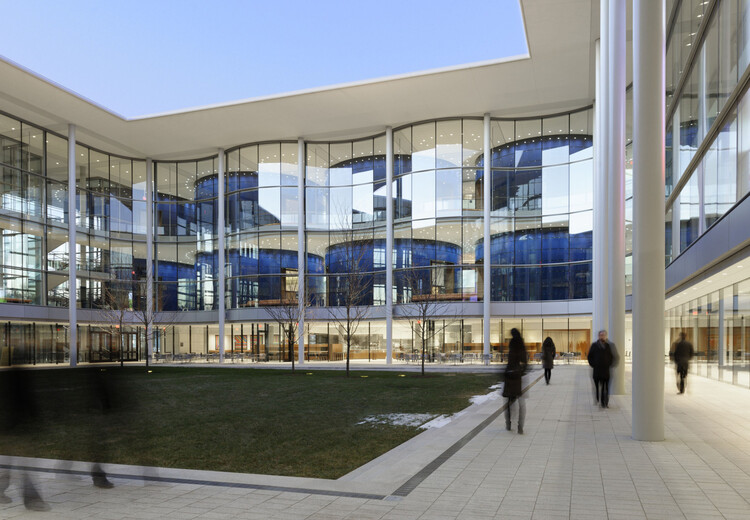 Yale School of Management / Foster + Partners. Image © Chuck Choi
Yale School of Management / Foster + Partners. Image © Chuck Choi
Also based in Europe, the Norman Foster Foundation is expanding its global educational reach through the Norman Foster Institute (NFI), which is currently accepting applications for the 2026 edition of its Master’s Programme on Sustainable Cities. The year-long program, held in Madrid, combines academic inquiry with hands-on engagement in three pilot cities across Asia, Europe, and Latin America. Students work directly with local planners and institutions to explore challenges related to mobility, climate resilience, public space, and urban governance. The 36-week course is structured across three phases, Foundations, Transformations, and Interventions, emphasizing data-driven strategies and interdisciplinary collaboration.
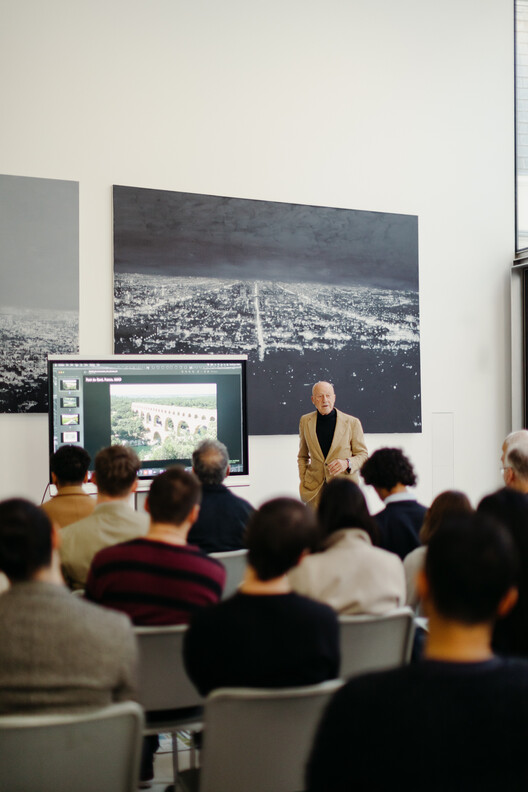 Norman Foster. Image © Pablo Gómez-Ogando via Courtesy of the Norman Foster Institute
Norman Foster. Image © Pablo Gómez-Ogando via Courtesy of the Norman Foster Institute
The Norman Foster Foundation promotes a holistic model of education that bridges architecture, design, technology, and the arts. It holds the Norman Foster Archive and Library, which documents the architect’s work while offering a broader perspective on the development of the contemporary built environment. The Master’s Programme introduces students to technical tools such as GIS, urban simulation, and data visualization, and features a global network of educators and practitioners. In addition to urban and architectural design, the program explores city science, environmental planning, and digital interfaces, reflecting the Foundation’s emphasis on cross-sectoral thinking and long-term urban sustainability.
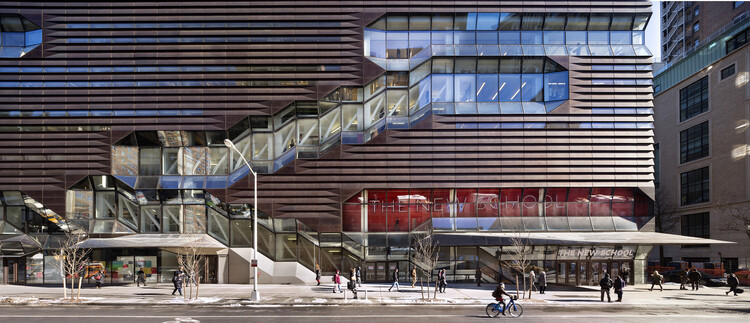 The New School University Center / SOM. Image © James Ewing
The New School University Center / SOM. Image © James Ewing
In the United States, the SOM Foundation continues to support academic and professional research through its international award programs. Founded in 1979 by SOM Design Partner Bruce Graham, the Foundation has awarded over $3.4 million to students and faculty across architecture, engineering, urban design, and related disciplines. Its core aim is to foster innovative research that responds to pressing design challenges and societal needs. Initially established to fund post-graduate travel and independent study, the Foundation has since expanded its focus to include thematic research awards, fellowships, and public programming.
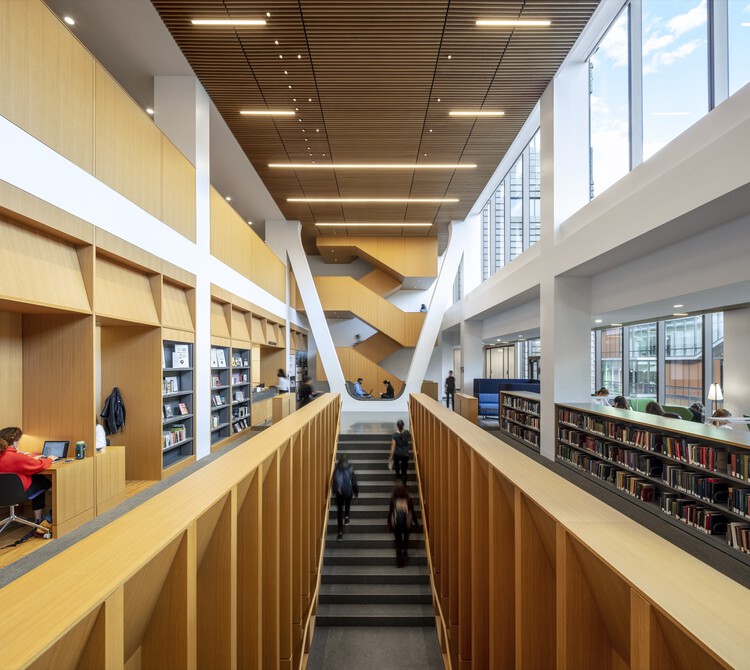 Barnard College, The Milstein Center / Skidmore, Owings & Merrill. Image © Magda Biernat
Barnard College, The Milstein Center / Skidmore, Owings & Merrill. Image © Magda Biernat
The Foundation’s 2025–2026 awards cycle centers on the theme “Exploring the Potential of Mobility Corridors,” a topic that examines how transportation and movement infrastructure can shape sustainable urban growth. Participants are encouraged to explore how integrated systems of mobility affect spatial equity, environmental performance, and the overall design of cities and regions. The awards include the Research Prize, European Research Prize, Robert L. Wesley Award, and additional fellowships in structural engineering and research residencies. Through its awards and events, including the International Research and Design Forum, the Foundation seeks to connect academic research with emerging practices in global design discourse.
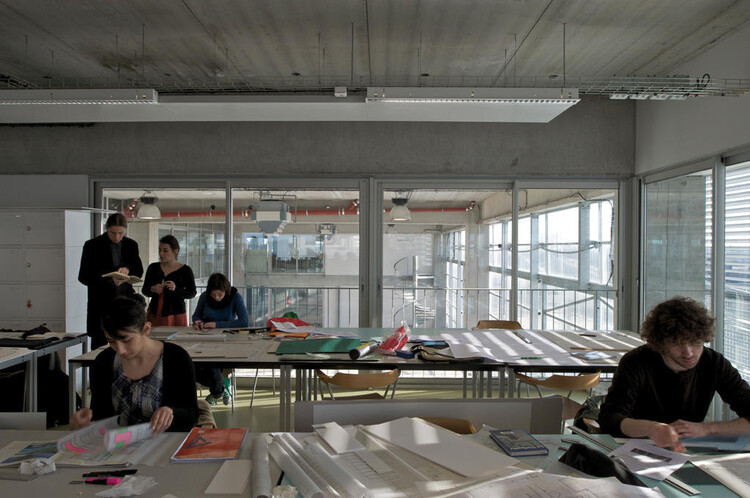 Nantes School of Architecture / Lacaton & Vassal. Image © Philippe Ruault
Nantes School of Architecture / Lacaton & Vassal. Image © Philippe Ruault
Similar efforts by architect-led organizations continue to shape architectural education and research through a variety of approaches. In 2022, Grimshaw launched a charitable foundation focused on creative education, aiming to provide new opportunities for emerging talent. Meanwhile, more recently, Bauhaus Earth announced its 2025 Experimental Fellows, a program investigating the role of earth materials and sustainable practices in contemporary design. Additionally, Henning Larsen recently broke ground on a rammed earth campus for a youth academy in Uganda, demonstrating how design initiatives can combine education and environmental awareness.

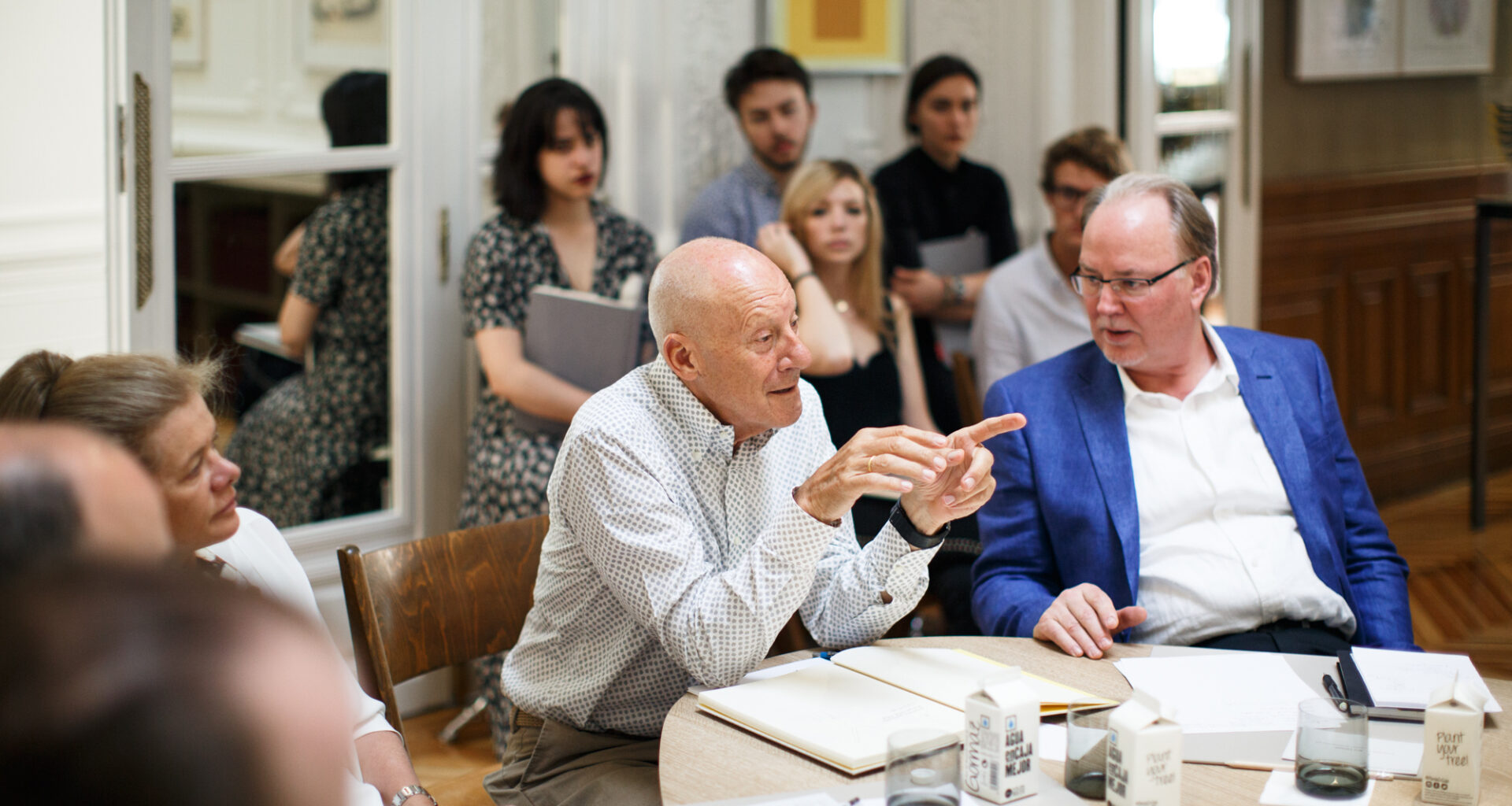
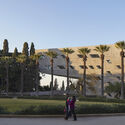

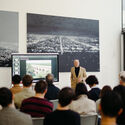
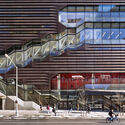
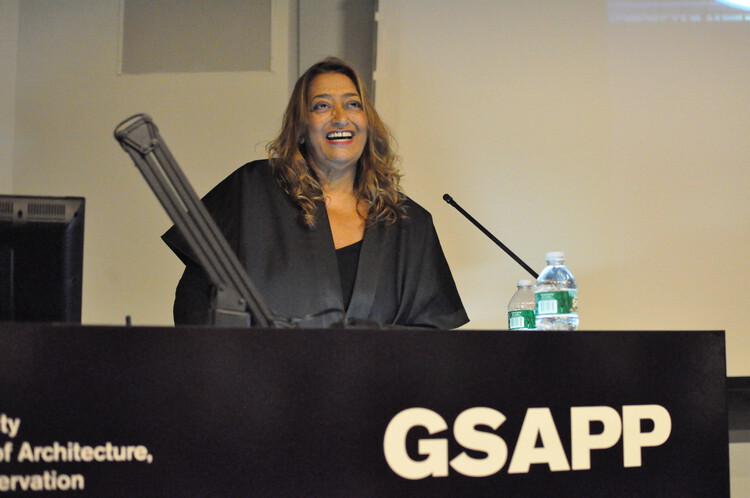 Zaha Hadid – Presentation ‘What is new? at the GSAPP, Columbia. Image © Alacoolwiki via Wikimedia Common lincenced under CC 2.0
Zaha Hadid – Presentation ‘What is new? at the GSAPP, Columbia. Image © Alacoolwiki via Wikimedia Common lincenced under CC 2.0